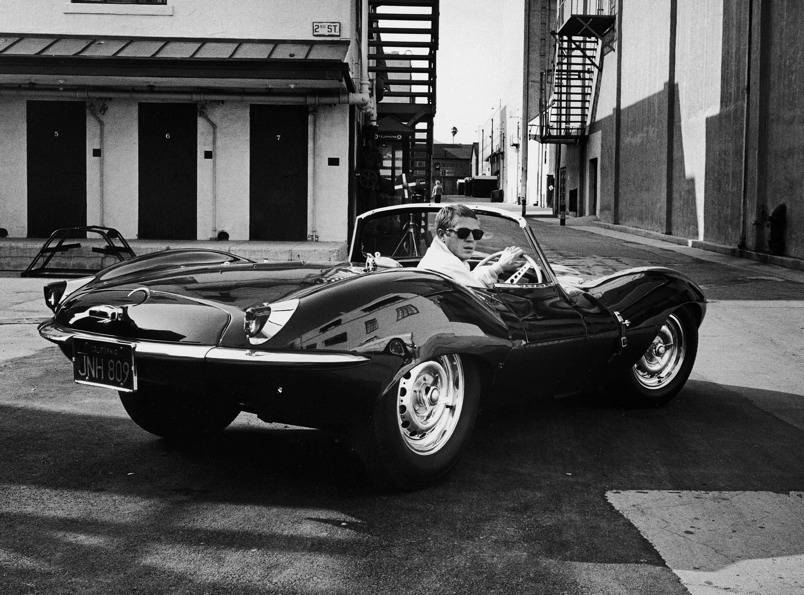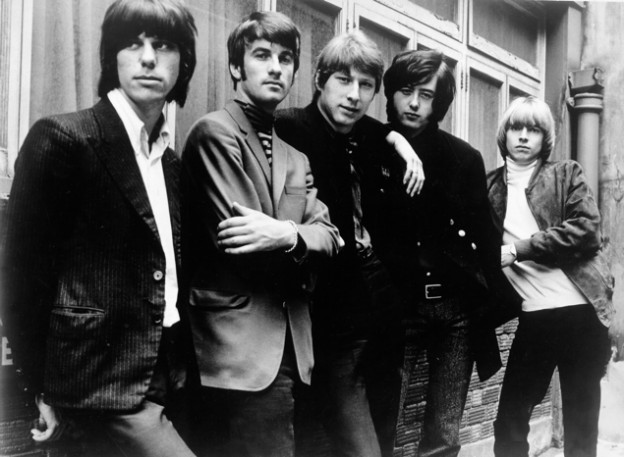There’s no arguing that The Yardbirds were one of the most important bands at the forefront of the British Invasion following the Beatles trans-Atlantic seismic smash-through. They were also an incubator of greatness. There is no other band in Rock history that can boast of having three of the most legendary guitarists grace their lineup at different points in its evolution. But with first Eric Clapton then Jeff Beck and finally Jimmy Page, The Yardbirds can stake exactly that claim. While they were somewhat eclipsed as a band by their illustrious members’ later fame and renown, it’s important to remember just how bloody good and groundbreaking The Yardbirds really were.
They started out by covering American Blues with an original lineup consisting of lead singer Keith Relf, Paul Samwell-Smith on base, Chris Dreja on rhythm guitar, Jim McCarty on drums and the short-lived Anthony Topham on lead guitar. When Clapton replaced Topham and the band took over the Rolling Stones’ spot at the famed Crawdaddy Club in 1963 the word was out in R&B-mad London that there was a new force to be reckoned with. But, much like the Stones and the Animals, The Yardbirds were not content with traditional Blues covers despite their proficiency and they rapidly branched out into offbeat, minor chord arrangements and a desire to push the Blues further into a heavy rock feel by utilizing distortion and feedback. It’s no accident that the last incarnation of The Yardbirds was actually the first coming together of Led Zeppelin in all but name only. It can be argued that there is a direct line from The Yardbirds fist pioneering improvised raveups circa 1964 to the heavy English Blues explosion of the later 60s that led to not just Zep but Cream, Iron Butterfly, Free, Deep Purple and a million other hard rocking white boys, eventually morphing into Glam and Heavy Metal.
With the charismatic Relf’s distinctive, somewhat ominous baritone and the band’s penchant for offbeat tempos and Eastern influences, The Yardbirds consistently produced some of the most interesting singles of the 60s, beginning with their breakout hit, “For Your Love.” Ironically, it was this experimentation as well as the striving for commercial pop success that led Clapton to quit the band and join the more “pure” blues of John Mayall’s Bluesbreakers in 1965. But Clapton didn’t leave his old mates completely in the lurch, recommending Jeff Beck as his replacement. Beck’s involvement led to the group’s creative apogee with massively influential hits like “The Train Kept A-Rollin'”, “Still I’m Sad”, “Heart Full of Soul” and the innovative proto-psychedelia of “Shapes of Things”.
The band quickly became such a part of the mid-60s zeitgeist that they even show up in Michelangelo Antonioni’s seminal Swinging London mystery, Blow-Up, literally banging out “Train Kept A-Rollin'” and playfully sending up both the hipster audience and Jeff Beck’s legendary temper.
Beck’s volatility was no joke, though, and it lead to his getting the sack just 18 months into his propulsive tenure. Fortunately for them and the rest of us, Jimmy Page was at the ready, having already joined as bassist and then switching to twin guitar alongside Beck. But while the band remained a force to be reckoned with as a live act, their recorded material was never again able to regain the pinnacle of the Jeff Beck era. With Relf and McCarty wanting to turn in a more folk-acoustic direction and Page determined to keep mining for pure plutonium, the true Yardbirds were no more by mid-1968. Page assembled a new group keeping bassist John Paul Johns and adding singer Robert Plant and drummer John “Bonzo” Bonham, intending to call them the “New Yardbirds”. Whether for legal reasons or Page’s own desire for a fresh start, Keith Moon’s ironic assessment of the new group’s chances became the new moniker and the rest is Rock ‘n Roll history.
https://www.youtube.com/watch?v=kNuQPTzuof4
But The Yardbirds are obviously more than just a footnote to Zeppelin. Their music lives on as some of the most creative and daring of the mid-1960s era. And with the path they blazed by deconstructing and reinventing the Blues they literally launched a thousand rock bands, whether through the efforts of their illustrious alumni or all the other musicians who went to school on their records and live recordings. In the same way that they and their peers were profoundly influenced by American Blues music, The Yardbirds kept that virtuous cycle a-rollin’, lighting the spark in others to make the music that would define the latter half of the 60s, the 70s and on into today’s generation of blues rockers. In its various incarnations and with its propulsive body of work, this was a band that saw the shapes of things to come and then helped make that future happen.
Amazingly, with an Amazon Prime subscription, you can get a ton of great Yardbirds music for no extra charge. That sure is a lot of classic rock bang for your buck.


